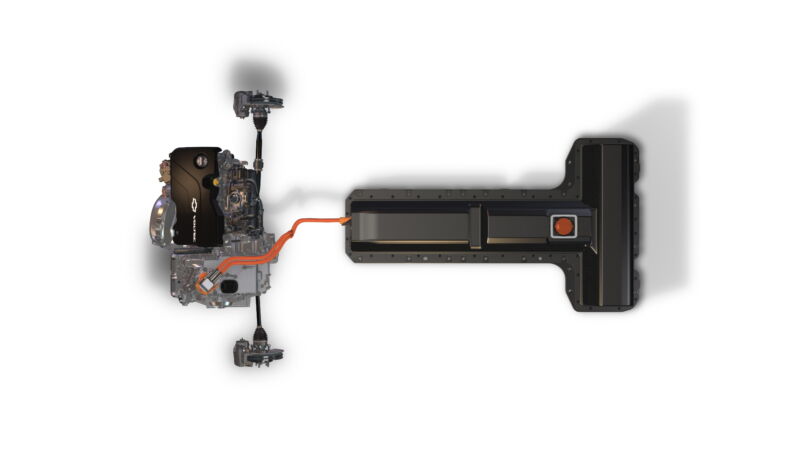
General Motors
In 2020, General Motors went all-in on its Ultium battery platform and battery electric vehicles to meet future energy and pollution regulations. By that time, it had already killed the Chevrolet Volt and its highly efficient plug-in hybrid powertrain. Now, it’s time to bring back the PHEV, according to GM CEO Mary Barra.
“Our forward plan includes bringing our plug-in hybrid technology to select vehicles in North America,” Barra said during a call on Tuesday morning to announce GM’s financial results for Q4 2023.
Despite US EV adoption growing by about 50 percent year over year in 2023, some analysts and automotive dealership groups have complained that BEVs are too difficult to sell. In November, this culminated with an open letter from several auto dealer groups to President Joe Biden, calling on him to slow down new fuel efficiency regulations that would require automakers to sell about four times as many BEVs to offset the emissions created by their internal combustion engine powertrains.
The president probably won’t reverse the impending corporate average fuel economy rules (better known as CAFE), but due to the American model of buying new cars, automakers probably need to listen when some of their largest customers start complaining. Yesterday, the Wall Street Journal reported that “influential dealers” have urged GM to add more hybrids.
And GM’s big BEV ambitions aren’t panning out quite as easily as it must have hoped. Although the company sold more than 2.6 million new vehicles in the US alone, only 75,883 were BEVs, and more than 62,000 of those were the small and affordable Chevrolet Bolt—a BEV that GM killed off in 2023. Production of Ultium-powered BEVs has been slow due to what GM tells Ars are automation problems packing battery cells into modules.
By the time the last Bolt rolled off its production line at GM’s Orion plant in late 2023, Barra had already backtracked. During GM’s Q2 2023 earnings report, she revealed that Chevrolet would resurrect the Bolt branding for a new smaller BEV using Ultium packs instead of the more expensive and more dated battery chemistry used in first-generation Bolts.
Barra was not more specific about the company’s hybrid plans beyond the fact that the vehicles would be plug-in hybrids instead of more simple parallel hybrids as favored by Toyota and others, with small capacity batteries that don’t need to be plugged in to recharge.
GM had plenty of experience developing its Voltec PHEV powertrain, which also powered the Cadillac ELT and two generations of Chevrolet Volt before disappearing in a puff of corporate strategy shifting. It’s logical to think that the Voltec powertrain, or an updated version, will join the Bolt in emerging from its ashes.

